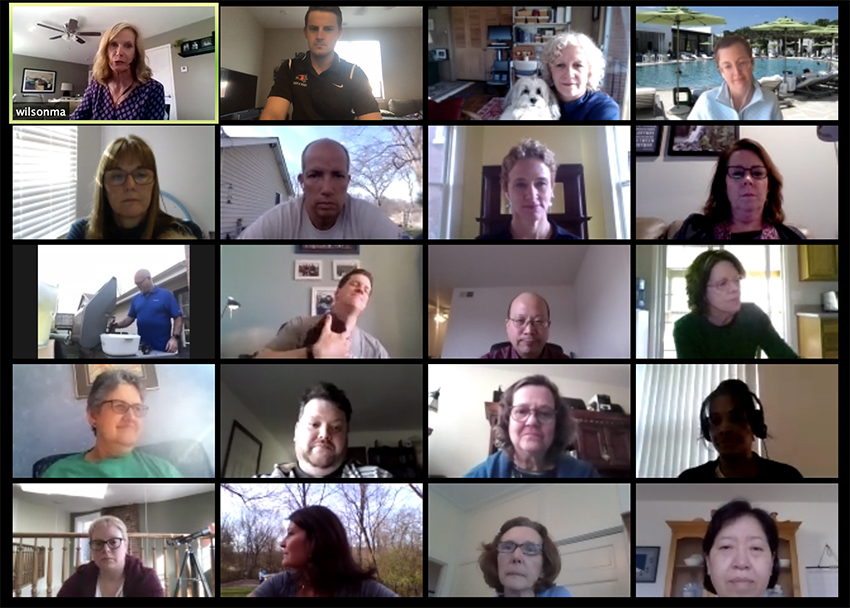DCHS Perseveres Through Unprecedented Times
In the midst of growing concerns regarding COVID-19 in mid-March, Saint Louis University (SLU), along with most other universities in the United States, made the decision to transfer in-person courses to online learning in an attempt to help slow the spread of the virus through social distancing. While the university community embraced this decision, that did not mean the transition would be an easy one for an institution operating in its third century with a solid foundation in face-to-face instruction, especially for classes in the health professions that traditionally involve a significant amount of hands-on instruction. However, faculty and staff members at SLU’s Doisy College of Health Sciences (DCHS) came together quickly over a two-week period to share their knowledge of remote learning tools and support one another in their efforts to deliver the highest quality education possible for the remainder of the semester.
Health Information Management Assistant Professor Julie Howe, MBA, D-ABMDI, is one DCHS faculty member who has previous online teaching experience and tried to view this transition as a new opportunity.
“I was excited to have the opportunity to innovatively transition classes online,” Howe said. “The learning platform may be different, but it offers a new way to engage students. I knew students would embrace the change and make the best of it.”
With less than a week’s notice, a group of DCHS faculty with the most experience with remote learning tools organized what was titled Skills Sharpening session to assist the faculty who have quickly transitioned their face-to-face courses for online instruction. Howe was one of the faculty members that volunteered to provide additional training to her faculty colleagues and appreciated the fact, that for some, there was a lot to offer in an expedited format.
“I wanted to explain the foundational information to think about while faculty build their online courses while keeping our requirements in mind,” How said. “We had a short time to transition so I wanted to focus on the basics of best practices.”
Nuclear Medicine Technology Program Director Crystal Botkin, Ph.D., MPH, CNMT, PET, FSNMMI-TS, was another DCHS faculty member who volunteered to help prepare other faculty members for the online transition. Dr. Botkin is an experienced user of Blackboard, SLU’s online teaching platform, and spent time teaching DCHS faculty about adding course content, disseminating online tests and quizzes and how to learn on this platform. While she knew the transition would take some work, Dr. Botkin never doubted the college would make it successfully.
“My initial thoughts of transitioning to completely online learning were positive,” Dr. Botkin said. “We have dedicated faculty in DCHS and they are always coming through in a pinch.”
DCHS Dean Mardell Wilson, Ed.D., RD, LDN, talked about how, even in the face of new challenges, the DCHS community has found a way to persevere.
“COVID-19 has certainly presented unprecedented challenges for our community, our country and our world. However, SLU’s mission of Men and Women for Others is innate and faculty, staff and students, while having to pivot quickly to e-learning, have rallied together and continue to support one another as we strive for excellence among all circumstances,” Dr. Wilson said.
Saint Louis University is a Catholic, Jesuit institution that values academic excellence, life-changing research, compassionate health care, and a strong commitment to faith and service. Founded in 1818, the University fosters the intellectual and character development of nearly 13,000 students on two campuses in St. Louis and Madrid, Spain. Building on a legacy of more than 200 years, Saint Louis University continues to move forward with an unwavering commitment to a higher purpose, a greater good.
